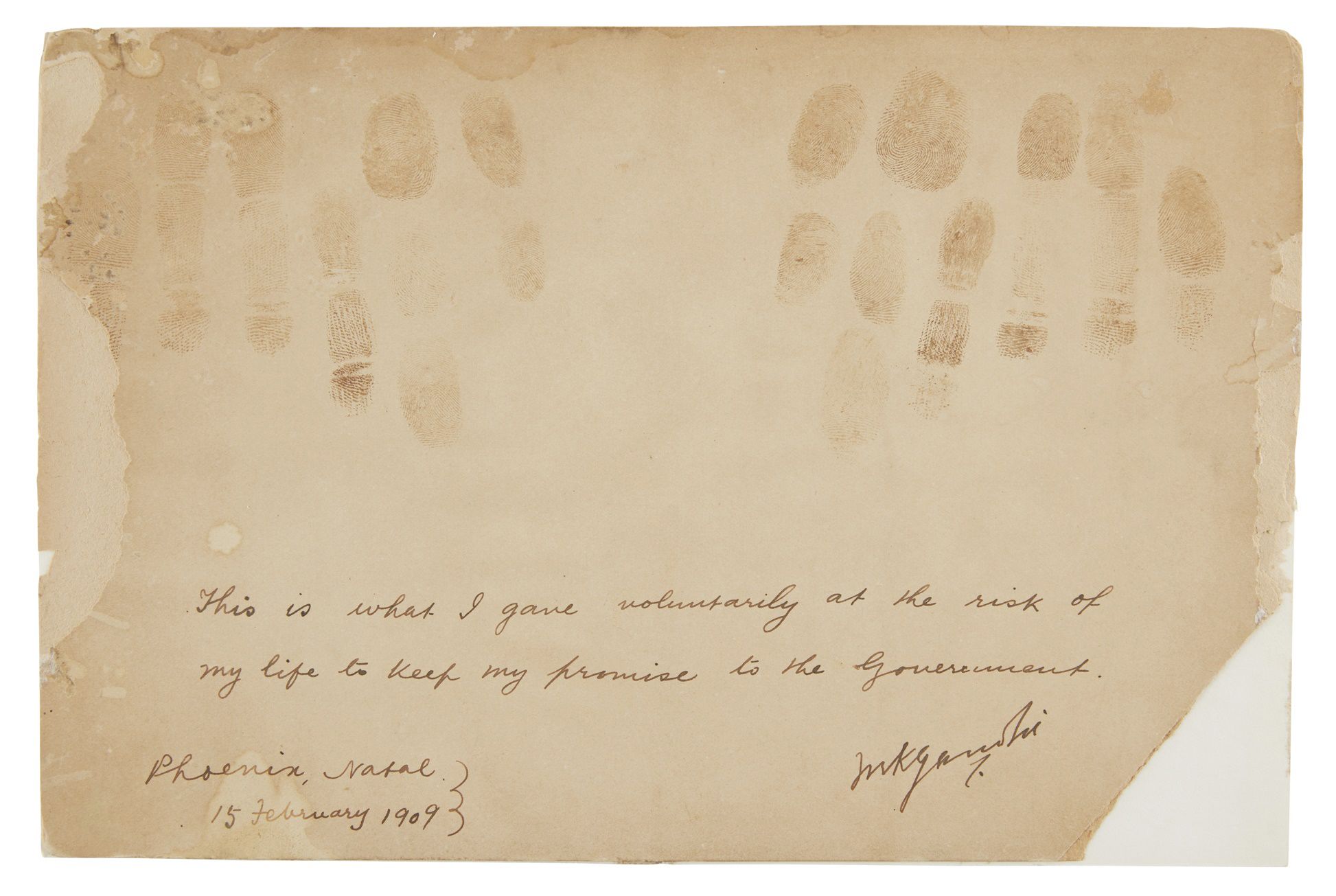A Record of Gandhi's Peace Movement
Perhaps the only existing example of Mahatma Gandhi's fingerprints, this document serves as a record of Gandhi's activism and peace movement in the early 1900s.

24 June 2021
Dominic Somerville-Brown
Perhaps the only existing example of Mahatma Gandhi's fingerprints, this document serves as a record of Gandhi's activism and peace movement in the early 1900s.
In the early 1900's Mahatma Gandhi was active as a lawyer in South Africa, and one of his notable efforts was to organise public resistance to the South African government's mandatory fingerprinting of "Indian" South African residents in 1907 and 1908. Gandhi was repeatedly arrested and imprisoned for refusing to submit to the fingerprinting of himself and other "Indians". The date and timing of this item -15th February 1909; Phoenix, Natal - corresponds to this history.

"This is what I gave voluntarily at the risk of my life to keep my promise to the Government. Phoenix, Natal, 15th February 1909, M.K. Gandhi"
In October 1908, Gandhi, after a visit to Natal, returned to the Transvaal, at the border refusing to produce a registration certificate or other means of identity, and was charged for this under section 9 of the Asiatic Registration Amendment Act, a law which had only been in force since 21st September 1908. Gandhi took the opportunity of his appearance in court to explain his reasons for leading resistance to the Asiatic Registration Act and the related Asiatic Registration Amendment Act. He was sentenced to two months imprisonment, but released when he agreed to voluntary registration.
The cursive signature "MK Gandhi" corresponds to known proven examples of Mahatma Gandhi's signature. The fingerprints cannot be compared to the known fingerprints of Mahatma Gandhi, as there are no known examples. The item appears to be the only existing example of Mahatma Gandhi's fingerprints.